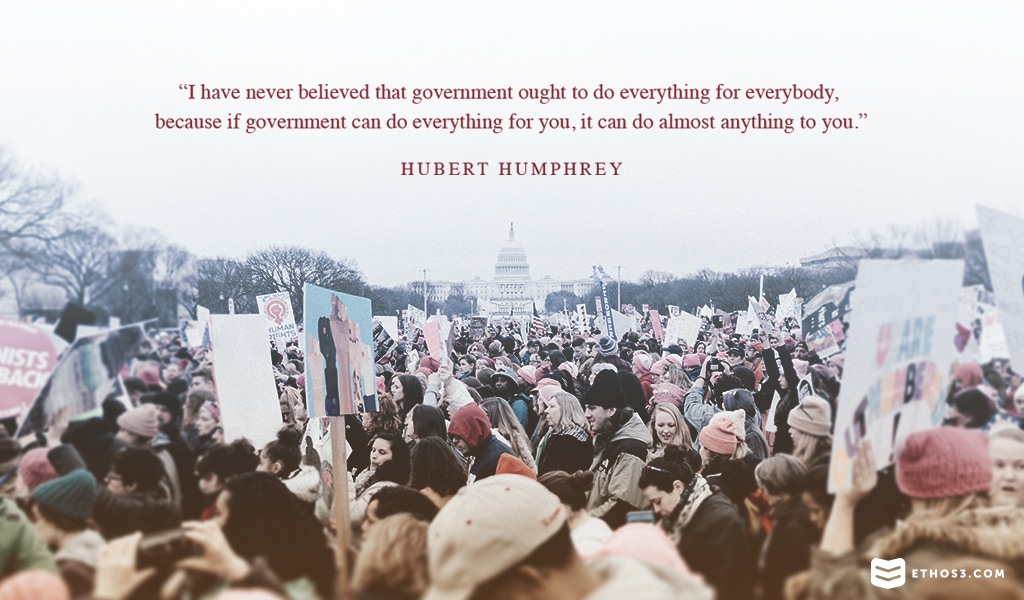After reading an article from MPR News about their highlights of Hubert Humphrey speeches, I was incited to action. The author of the post, Sara Porter, indicated that Humphrey is “Minnesota’s most famous orator.” Upon reviewing several of his speeches, I immediately understood why she would make that claim. When looking at one his most popular public speaking moments – a 1974 speech at the St. Paul Hilton Hotel during a United Way meeting – I noticed a few ingenious literary devices that proved extremely impactful.
Wordplay
Take, for example, the following excerpt from the 1974 speech.
“The first three words are the most important. They establish for all time that America is ‘We the People.’ Not ‘we the government,’ not ‘we the political parties,’ not ‘we the rich,’ not ‘we the white,’ but ‘We the People.’ This is the central reference, the focal point of American government.”
In this portion of the speech, Humphrey uses an interesting brand of wordplay to drive home the principle of justice. During this time period, his language had a direct and liberating tone for those who felt mistreated by the American government.
Repetition
Have you ever tried using repetition during your public speaking events? It is a technique with a huge amount of potential. In his 1974 speech, Humphrey employed the tactic in a way that not only connected with his audience, but that also directly addressed a specific group of listeners. He spoke to the United Way volunteers when he said the following:
“Today, more than ever, we must return to the fundamentals and revive the spirit of our nation. Today, more than ever, we must not look to government to solve all of our problems. Today, more than ever, we must look to the spirit of voluntarism – the brotherhood of people concerned, involved, in helping other people.”
Humphrey used a particular type of repetition called anaphora. This technique involves repeating the first section of a sentence. Presenters and public speakers integrate this literary device into their speeches in order to provoke a certain reaction or feeling.
Conflict
Throughout the course of his speech, Humphrey even injected a bit of conflict. Although he works for the government and is, in effect, a representative of that government, he recognizes that the more people expect the government to solve their issues, the more the government can do to the people – whether they want it or not.

Bringing conflict into your public speaking style makes your message much more interesting than it would be if you played it safe. Introduce a new idea or look at a topic from a different perspective. Your audiences will thank you for it.
Humphrey served his country in a variety of posts – from Minneapolis mayor and U.S. senator, to vice president under Lyndon B. Johnson. This was just one example of his public speaking prowess. To find out more tips from history’s greatest speakers, review the posts below:
Presentation Persona Spotlight: Abraham Lincoln
Public Speaking Tips from Margaret Chase Smith’s “Declaration of Conscience”
Speaking Lessons from History: “Duties of American Citizenship” by Theodore Roosevelt
